Parasite
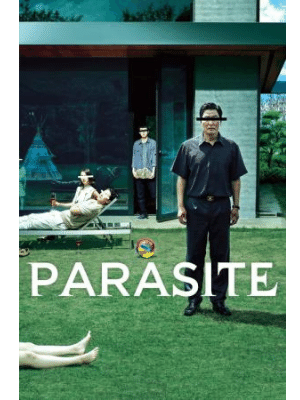
R, 2019, Drama/Comedy, 2h 12m
Table of Contents
What Is Parasite About?
A poverty stricken family are willing to go to extreme measures in an attempt to seize a wealthy home.
Why You Should Watch Parasite
Parasite is a masterful film that blends humor, suspense, and social commentary into a gripping and thought-provoking story. Directed by Bong Joon-ho and starring an excellent ensemble cast, the film tells the story of two families, the wealthy Parks and the struggling Kims, whose lives become intertwined in unexpected and dangerous ways.
From the very first scene, Parasite establishes a sense of tension and unease that never lets up. The Kims, a family of four living in a cramped basement apartment, are portrayed as resourceful and clever, but also desperate and resentful of their lowly status in society. When the opportunity arises for the son, Ki-woo (Choi Woo-shik), to tutor the daughter of the wealthy Parks, the family sees it as a chance to infiltrate the Parks’ home and start taking advantage of their wealth.
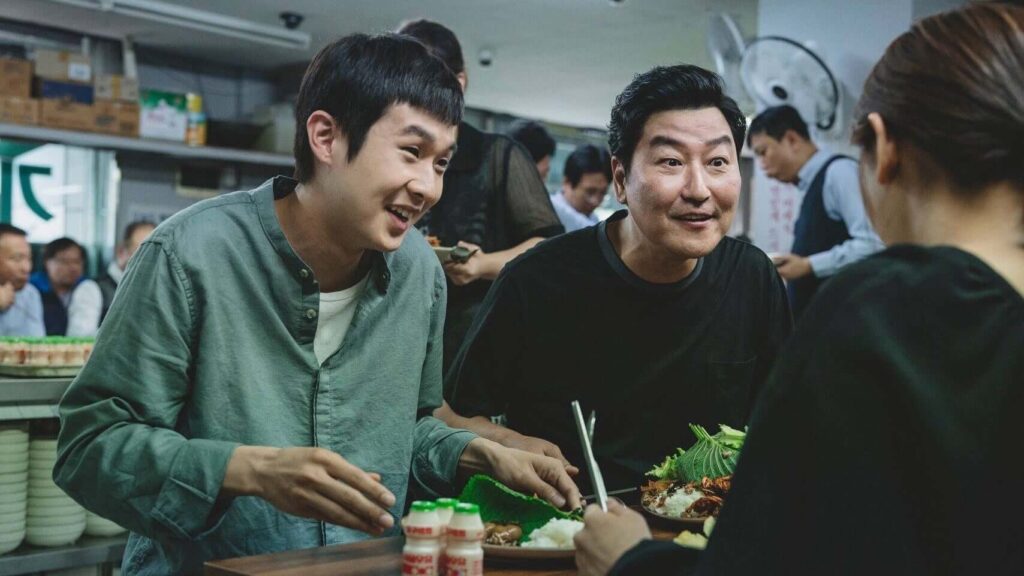
What follows is a series of twists and turns that keep the viewer on the edge of their seat. As the Kims worm their way into the Parks’ lives, they begin to uncover dark secrets and hidden desires that threaten to unravel everything they have worked for. Meanwhile, tensions between the two families simmer beneath the surface, culminating in a shocking and violent climax that leaves the viewer reeling.
One of the strengths of Parasite is its ability to balance humor and suspense without ever losing sight of its underlying social critique. The film is at once a black comedy, a thriller, and a scathing commentary on the class divisions that pervade contemporary society. Bong Joon-ho deftly navigates these different tones, creating a film that is both entertaining and thought-provoking.

The performances in Parasite are uniformly excellent, with each actor bringing depth and nuance to their characters. Song Kang-ho is particularly outstanding as the patriarch of the Kim family, bringing both humor and pathos to his portrayal of a man who will do anything to provide for his family. Cho Yeo-jeong is also excellent as Mrs. Park, the oblivious matriarch of the wealthy family, who becomes increasingly vulnerable to the Kims’ manipulation.
Perhaps the most impressive aspect of Parasite, however, is its ability to engage with complex social issues without ever feeling didactic or preachy. The film is a searing critique of the wealth gap that exists in modern society, but it never reduces its characters to mere symbols or mouthpieces. Instead, it presents them as fully realized individuals with their own desires, fears, and motivations, making the viewer both sympathize with and condemn them at the same time.
Parasite is a great film, with a sharp, satirical look at class and inequality. It’s great acting and craftsmanship make it really unique. If you can get past the subtitles, definitely add this to your watch list.
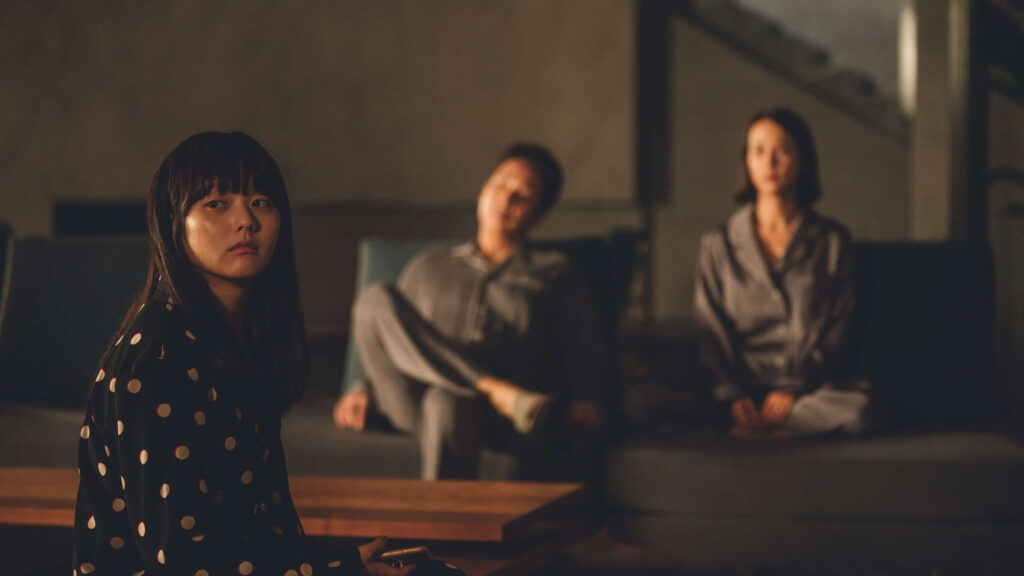
The Theme of Parasite
Parasite is a film that delves deep into the themes of class and inequality, as well as the human tendencies of deception and manipulation. The movie depicts a stark contrast between the wealthy Parks and the struggling Kims, highlighting the deep divisions that exist in modern society. The Kims are forced to resort to cunning tactics and manipulations to gain access to the Parks’ wealth, as they are unable to achieve success through honest means. This highlights how the class system often limits upward mobility and opportunities for those who are not born into privilege.
The film also explores how the impact of wealth can affect human behavior. The Parks are portrayed as oblivious and privileged, with no understanding of the struggles of those living in poverty. This lack of empathy and understanding ultimately leads to conflict between the two families. The Kims, on the other hand, are depicted as resourceful and clever, but also desperate and resentful of their lowly status in society. Their actions, while manipulative, can also be seen as a form of survival and a response to the societal structures that limit their opportunities.

Another key theme of the film is the idea of the “parasite” itself. The title of the film refers not only to the Kims’ manipulations, but also to the parasitic relationship between the two families. The Kims are able to benefit from the Parks’ wealth, but only by infiltrating their lives and deceiving them. Similarly, the Parks are able to enjoy the services of the Kims, but only by taking advantage of their desperate circumstances. This cycle of parasitic behavior ultimately leads to a tragic and violent conclusion, highlighting the destructive nature of social inequality.
Lastly, Parasite also touches on the idea of identity and the ways in which social status can shape one’s sense of self. The Kims are forced to assume false identities in order to fit in with the Parks, highlighting the pressures to conform to societal norms and expectations. This is especially evident in the character of Ki-woo, who adopts the name “Kevin” in order to seem more Western and sophisticated. Similarly, the Parks’ identities are shaped by their wealth and privilege, with their sense of self-worth tied to their material possessions.
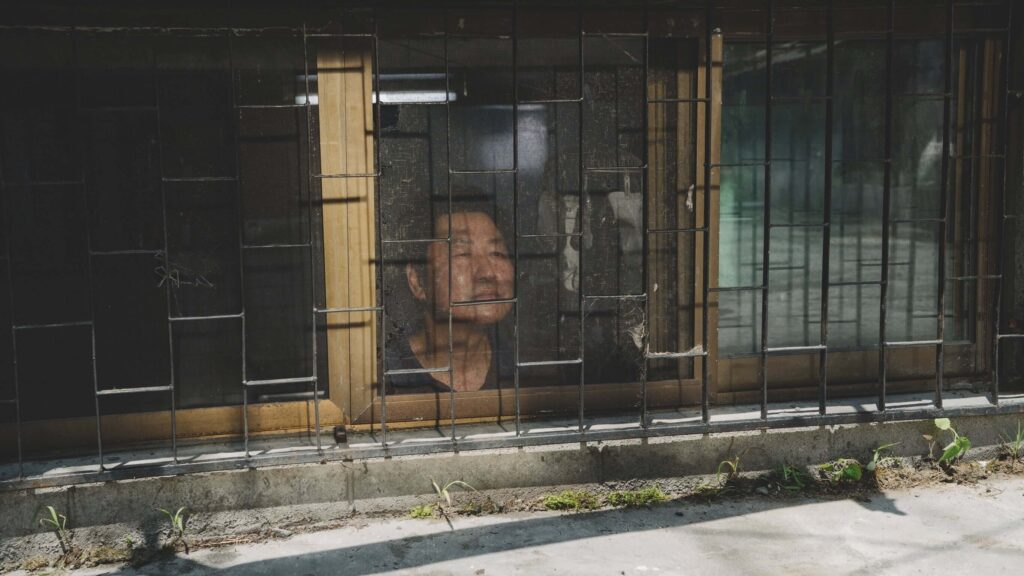
The Cinematography of Parasite
The cinematography in Parasite is an integral part of the film’s storytelling, as it helps to convey the themes and messages of the story. One key aspect of the cinematography is the use of framing to create a sense of hierarchy and power dynamics between characters.
For example, in the early scenes of the film, the Kims are often framed in cramped and cluttered spaces, such as their basement apartment or the overcrowded pizza shop where they work. By contrast, the Parks are frequently shown in large, open spaces with high ceilings and sweeping views, such as their luxurious living room or their spacious backyard. This contrast creates a sense of class difference and emphasizes the power imbalance between the two families.

Another aspect of the cinematography in Parasite is the use of lighting and color to convey mood and tone. The film often uses dim, moody lighting to create a sense of tension and unease, particularly in the scenes that take place in the Parks’ home. The use of cool, blue tones in these scenes also adds to the feeling of detachment and alienation that the Kims experience in this unfamiliar environment. By contrast, the scenes that take place in the Kims’ home are often warmer and more saturated, with brighter colors that reflect the family’s closeness and warmth.
The film also makes use of different camera techniques to convey the film’s themes and messages. For example, the film frequently uses long takes and slow pans to create a sense of unease and tension, particularly in the scenes where the Kims are trying to hide from the Parks or carry out their scheme. These extended takes also create a sense of momentum and urgency, as the viewer is forced to follow the action in real-time.
The Soundtrack of Parasite
The soundtrack of Parasite is an integral part of the film’s overall mood and atmosphere. Composed by Jung Jae-il, the score features a mix of orchestral music, electronic beats, and traditional Korean instruments, which all work together to create a sense of tension, unease, and dark humor.
One of the key aspects of the soundtrack is the use of leitmotifs, which are recurring musical themes that are associated with specific characters or situations. For example, the Kims are often accompanied by a bouncy, playful theme that reflects their resourcefulness and cleverness, while the Parks are often accompanied by a serene, elegant theme that reflects their wealth and status. By contrast, the music that accompanies the more suspenseful or violent scenes in the film is often more dissonant and unsettling, with jarring electronic beats and harsh, scraping sounds.
Another aspect of the soundtrack is its use of traditional Korean instruments, such as the bamboo flute and the gayageum, which are often used to underscore the more dramatic or emotional moments in the film. These instruments add a distinctively Korean flavor to the score and help to ground the story in its cultural context.
You can listen to the full motion picture soundtrack below.
The Cast of Parasite
- Song Kang-ho as Kim Ki-taek – The patriarch of the Kim family, who is unemployed and struggling to make ends meet. He is resourceful and cunning, but also lacks empathy and can be selfish.
- Choi Woo-shik as Kim Ki-woo – The son of the Kim family, who is clever and ambitious. He poses as a university student to tutor the daughter of the wealthy Park family, which sets in motion the events of the film.
- Jang Hye-jin as Kim Chung-sook – The matriarch of the Kim family, who is tough and pragmatic. She works as a housekeeper for the Parks under a false identity, and has a history of running scams.
- Park So-dam as Kim Ki-jeong – The daughter of the Kim family, who is skilled at forgery and artifice. She poses as an art therapist for the Parks’ son, and develops a complex relationship with him.
- Lee Sun-kyun as Park Dong-ik – The patriarch of the Park family, who is a wealthy and successful businessman. He is somewhat naive and trusting, but also can be patronizing towards those he sees as beneath him.
- Cho Yeo-jeong as Park Yeon-kyo – The matriarch of the Park family, who is elegant and refined. She is somewhat ditzy and oblivious, but also can be manipulative and controlling.
- Jung Ji-so as Park Da-hye – The daughter of the Park family, who is a high school student. She is introverted and moody, but also develops a close bond with Ki-woo.
- Jung Hyeon-jun as Park Da-song – The son of the Park family, who is young and impressionable. He has a fascination with Native Americans and is easily spooked.
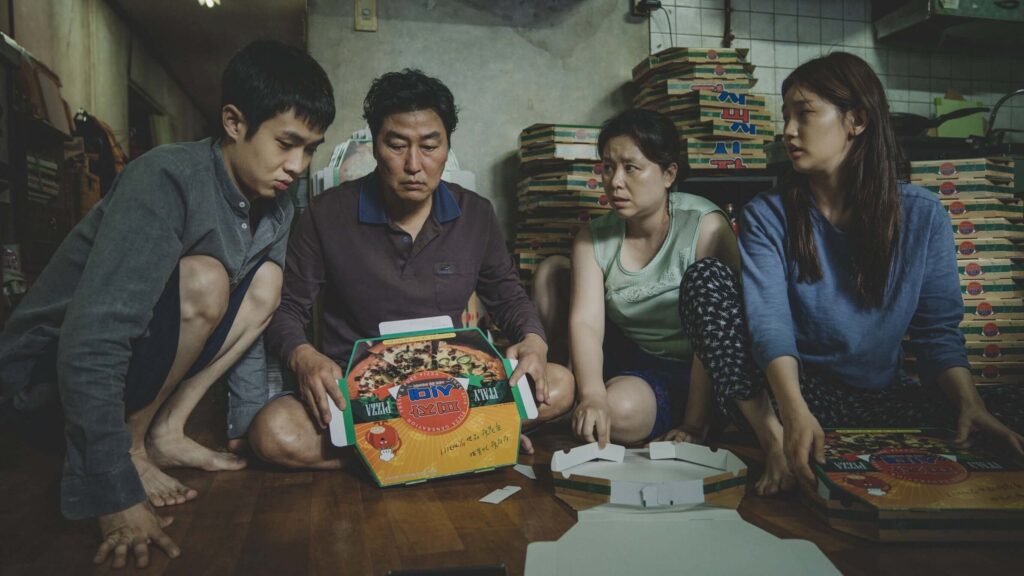
The Filmmakers of Parasite
- Director: Bong Joon-ho
- Screenplay: Bong Joon-ho and Han Jin-won
- Producer: Kwak Sin-ae and Moon Yang-kwon
- Cinematography: Hong Kyung-pyo

Ram Don

Inspiration
Yeon Kyo’s Rom Dom Lo Mein

More About Parasite
Parasite won numerous awards in 2019-2020. In total, the film won 219 awards and was nominated for 341 awards worldwide. This includes major awards such as:
- Academy Awards (2020): Best Picture, Best Director, Best Original Screenplay, and Best International Feature Film.
- Golden Globe Awards (2020): Best Foreign Language Film.
- BAFTA Awards (2020): Best Film, Best Director, Best Original Screenplay, and Best Film Not in the English Language.
- Cannes Film Festival (2019): Palme d’Or.
- Screen Actors Guild Awards (2020): Outstanding Performance by a Cast in a Motion Picture.
These are just some of the awards won by Parasite among the many other accolades the film has received.

